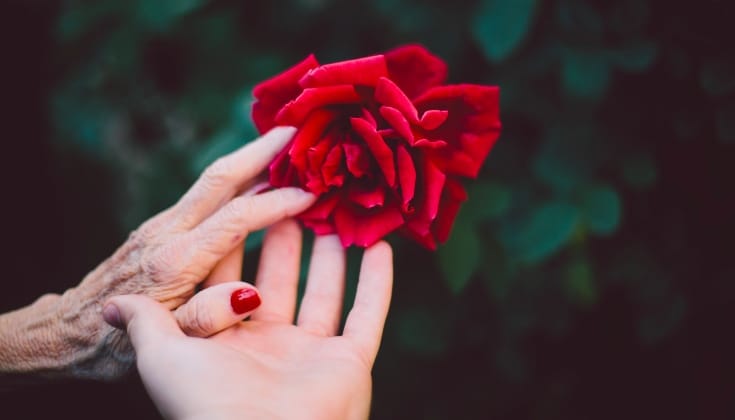The Buddha often spoke of the importance of good friends. The most famous moment was when his longtime attendant and cousin, Ananda, asked him if good friends are important. Yes was the reply.
Just before he died, Buddha reiterated the importance of friendship, offering specific instructions to his followers. He was comforting the people who were already mourning the loss of him, reminding them of the behaviors that would lead to their happiness: “I will tell you another seven things conducive to welfare . . . . As long as monks do not rejoice, delight and become absorbed in works . . . in chattering, . . . in sleeping, . . . in company, . . . in evil desires, . . . in mixing and associating with evil friends, . . . they may be expected to prosper and not decline.”
It turns out that our behaviors usually shift significantly when we seriously take up the spiritual path. We tend to become quieter and enjoy quieter pastimes. Activities that used to draw us to them like sirens lose their pull. Staying up late to practice “Time After Time” for the next karaoke party just isn’t worth the effort. Better to sleep so we can be awake for our morning meditation or prayer. We seem to grow a sixth sense that warns us to sidestep potentially dangerous situations we used to dive into—the dope smoking days, the beer parties, the hunt for multiple sexual partners. We lose our tendencies to lie, exaggerate, need to be noticed. We aren’t as tempted by entertainment. We’re willing to stay home with what is right in front of us.
One result of these changes in behavior? We lose old friends.
Nobody seems to talk about this or how much it can hurt, especially when we lose a best friend. Not through death, although that is killer heartbreak, but by the simple withdrawal of their friendship. We’ve changed. He or she moves on. Without us.
As I write this I am watching one of my dharma brothers wrestle with the loss of his best friend, a compadre who has seen him through marriage, divorce, sickness, and health. Suddenly though, what they have in common doesn’t even come close to what they don’t. And it hurts. When my brother tells me about it he has tears in his eyes.
Anyone who has lost a best friend knows that it can hurt as much as losing a romantic relationship. This is someone who has known us intimately—our hopes, dreams, disappointments, and heartbreaks. She’s rubbed our back while we’ve puked out the last margarita we’ll ever drink so-help-us-Buddha. He’s walked through miles—literally—of neighborhoods downtown looking for your car with you—the one you forgot you loaned to your cousin for the day. When you both see it in the driveway after a day of searching, you just look at each other and laugh.
I tell my dharma brother that I understand his sadness, that I grieved for a year when one of my best friends and I parted ways after more than thirty years of girlfriending. It was time, but that didn’t matter. I still wept for the lost phone calls, the day trips, the shared sense of the world’s absurdity. We had been friends from the years when we were both struggling to make our first house payments, in our early twenties. Barbara witnessed my marriage to my daughter’s father. I performed the ceremony for the renewal of her marriage vows with her husband of three decades. We raised close to the ground kids in tandem—seeing them through their terrible twos and their terrible twenties—all without turning to drink, only because we took turns telling each other that “This too shall pass.” I stayed in regular touch with her when her mother was dying, and she welcomed me into her house for months, twice, when I was determined to make major life changes against great odds. The first time, I was running away from a man who had discovered how to argue with his fist. The second time, I was trying to figure out how to come up for air, given the exhaustion of running a Zen Buddhist temple in an inner city.
But friendships, like everything else, change. Suffering is everywhere. The Buddha didn’t mince words about this. At the same time he spent forty years teaching us, ad nauseum, how to not only survive but thrive in this ocean of heartbreak that he called samsara: through nonattachment.
Nonattachment doesn’t mean that we don’t care. We care. And it doesn’t mean that we stop thinking about someone or that we lose our loving feelings for them. Nonattachment means that we let them be who they are, right now, and do what we have to do to be okay with that without trying to make them into anything else. This is where virya (exertion) comes in. It can take an inordinate amount of energy to step back from wanting to call, write, email, Twitter, or all of the above to this person to blame him or her for everything that we have both lost. It is just too easy to take the high road of righteousness, to write off the loss of the friendship to our expanding spiritual glow and their lack of one. If we can blame, we don’t have to mourn. Virya allows us to mourn because it gives us what we need to stay smack in the middle of the loss.
This energetic effort is what allows us to let go of our opinions energetic effort and wishes for how we want things to be. I’ll be honest. This can totally suck. He was our best friend, after all.
Yet when we can muster the courage to simply be with the reality of our relationship as it is playing out right now, a funny thing happens. We get to keep the friendship in the form of memories and the feelings of caring. We see that what we have left is a shared history of growing up and learning how to live life, with all of its stories, laughter, and heartbreak.
There is great freedom in this place of virya, along with a boatload of tears. If we are willing to take this leap of acceptance, we’ll discover that we get to keep this friend in our heart for ever and ever, with gratitude and goodwill. This is the friendship praised by the masters—one built on loving-kindness, compassion, equanimity, and (wait for it) joy. I promise.
Excerpted from Close to the Ground, copyright 2013 by Geri Larkin. Reprinted with permission by Rodmell Press.

